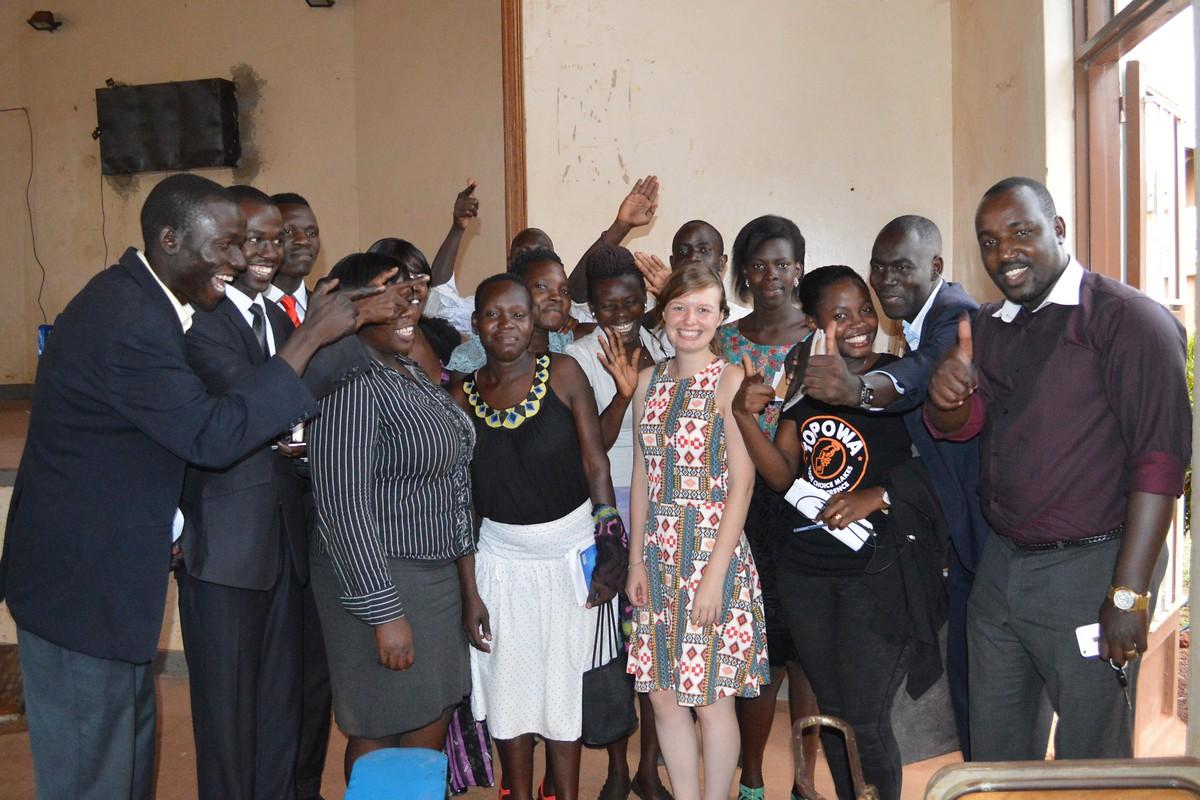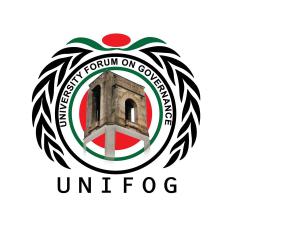Students Discuss the Impact of Poverty on Youth Participation - Foundation Office Uganda and South Sudan
Event Reports
While a number of constitutional structures exist to ensure youth representation in the democratic system (e.g. Youth MPs and the National Youth Council), young people are still unable to have a meaningful influence on the political decision making process. With the youth debate in Gulu students had the possibility to exchange ideas on how to improve effective youth participation.
After welcoming remarks by Mr. Bruce Balaba Kabaasa, Associate Director of UNIFOG, and Ms. Nele Krüger, Intern at KAS, Mr. Yusuf Kiranda, Director of UNIFOG and moderator of the debate, introduced the topic of the debate to the audience. He invited the panelists Ms. Florence Acuma, Coordinator of Apac District Youth Network (ADYN), Mr. Donnas Ojok, Social Entrepreneur and Volunteer at UNIFOG, Mr. Richard Ruganya, Law Student and Guild President at Gulu University and Ms. Rehema Namirembe, Coordinator of TDA Candidates' Selection Committee, to discuss the reasons of ineffective youth participation in Uganda.
At first Mr. Ojok presented an inspiring poem on youth participation. He compared the youth with a referee in a football match and highlighted the power the youth had.
The panelists discussed the reasons why youth participation remained ineffective and noted that current representation structures were occupied by the NRM and therefore did not function as a real form of representation. Ms. Acuma pointed out that youth representatives were not included in the decision making process and were unable to be part of committees where the decisions were prepared.
Mr. Michael Mugisha, Technical Advisor with UNIFOG and co-moderator of the debate, collected comments and questions of the audience to ensure a lively and interactive discussion. Participants raised the argument that poverty was the main hurdle to participating in the democratic process. They argued that poverty forced young people to accept being bribed and therefore the youth was unable to formulate their interests and implement favorable policies. Ms. Namirembe disagreed with the audience and noted that poverty was not the reason for bribery. She blamed the youth themselves for selling their votes and not holding their leaders accountable.
Ms. Acuma informed the audience about her work in Apac and presented a best practice model. In Apac District, youth structures existed from the village level up to the district level. She explained that this structure ensured regular input from the grass roots and a strong connection between all youth groups in the district.
We like to thank the panelists for sharing their experiences and contributing to a lively debate. Moreover we are very happy about the high attendance of students.
Author: Nele Krüger, KAS Intern











